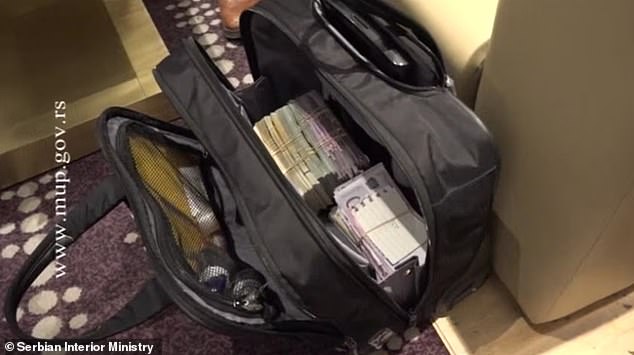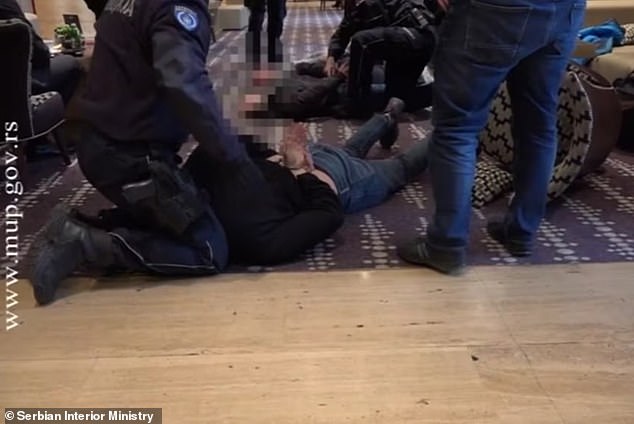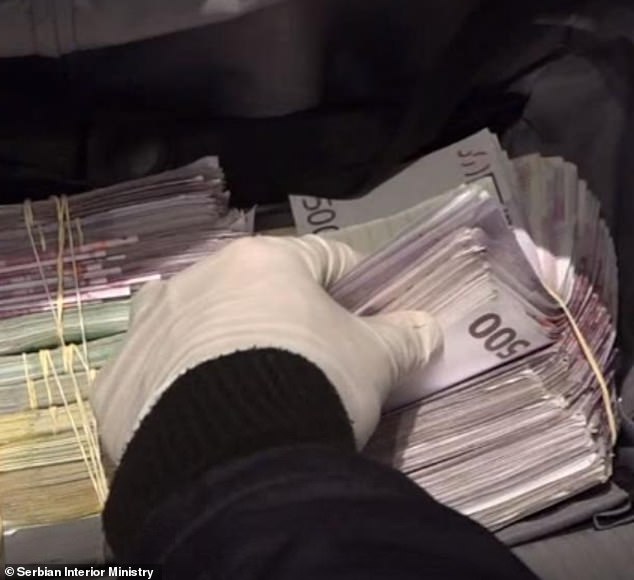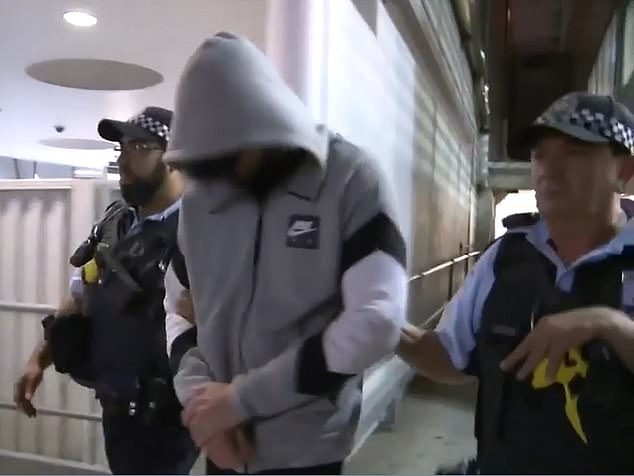An Australian businessman arrested in Serbia as part of an international drug operation involving a shipment of 1.28 tonnes of cocaine has been sentenced to 18 years in prison.
David Edward John Campbell, 54, was arrested outside the Metropol Palace hotel in Belgrade in January 2018 and sentenced on Friday.
Campbell was working as a lookout for two other Canberran businessmen trying to recover cocaine from a rival crime syndicate who were actually undercover police officers who had intercepted it.
The cocaine had a street value of $1.5 million and, at the time of his arrest, Campbell was armed and “ready to kill” an undercover police officer, a judge concluded.
The shipment of 2,576 blocks of cocaine was stopped before reaching Sydney.
Campbell was convicted in 2023 of conspiracy to possess a commercial quantity of cocaine imported from New South Wales. District Court.
Judge Phillip Mahony SC sentenced him on Friday to 18 years in prison with a non-parole period of 10 and a half years, reports the ABC.
David Edward John Campbell, 54, was jailed on Friday for 18 years after an associate brought him in to help recover a cocaine shipment worth $1.5 million.

Serbian authorities arrested Campbell and his two Australian business partners in Belgrade.

His cocaine had been confiscated by undercover police posing as a rival cartel offering to sell it to him.
The cocaine was sent to Australia by a Colombian drug cartel that hid the blocks inside a Chinese shipment of prefabricated steel structures.
After the cocaine “disappeared” in 2017, Campbell was bought into the plot by his former business partner, Rohan Peter Arnold, to help get him back.
Undercover police posed as a rival cartel who claimed to have found the drugs in New Zealand.
For his part, Campbell was too loyal to Arnold, Judge Mahony said.
Campbell knew Arnold through “their legitimate and long-term business relationship over many years,” which was exploited by Arnold, the judge said, “allegedly out of unwarranted loyalty.”
Judge Mahony added that Arnold, known as the “Australian Steel King”, warned Campbell that the cartel and its Chinese affiliates would “come after them” if they failed to recover the cocaine.
The court heard Campbell had been surveilled by cartel members who also sent him photographs of his family, creating “non-exculpatory duress”.
The former businessman voluntarily traveled to New Zealand in 2017 to recover the missing cocaine.
Judge Mahony said Campbell accompanied Arnold to Serbia for the same reason they met another Canberra businessman, Tristan Egon Sebastian Waters, 40.
Waters, who lived in Dubai, had traveled to Serbia to help the couple in their mission to recover the cocaine, where he also acquired a gun for Campbell in Belgrade.
The three were subsequently arrested in Serbia, where Campbell served a six-month sentence for possession of the gun and 13 bullets before being extradited to Sydney, where he will stand trial in 2023.
Campbell was acquitted by a jury of conspiracy to import a commercial quantity of a border-controlled drug, but convicted of participating in a conspiracy to possess cocaine.

Serbian authorities found a gun and a significant amount of cash during the arrest.
His lawyer told the court during his sentencing this year that his client had been used by the cartel. and considered “totally expendable cannon fodder”.
The lawyer agreed that Campbell was a ‘courier” and a “low-level official”, as evidenced by his exclusion from the cartels’ encrypted chat groups.
However, prosecutors disputed this belief and argued that Campbell was actually ““a trusted, high-level facilitator” plays a “crucial” role.
They also argued that Campbell’s claim of acting under duress was “completely incredible.”
Judge Mahony agreed with prosecutors that Campbell was more than a ‘messenger boy’, but he was in fact still a low-level player.
The judge also said that there had been some ‘“non-exculpatory coercion,” as evidenced by a high-ranking cartel member who called him a “mutt” in a message that also suggested Campbell should be killed.
“David needs to be beaten, this dog, no matter what,” the message said.

Campbell was extradited to Sydney. He will be eligible for parole in 2028.
Judge Mahony added that Campbell had “plenty of opportunities” to report any cartel threats to the police which he did not take advantage of in the three months he was involved with the union.
“His voluntary act of traveling to New Zealand for the first meeting, his continued commitment to encrypted messages and his volunteering to go to Belgrade,” he said.
“His acquisition of a firearm in Belgrade and also the ample opportunity he had to go to the authorities over a period of about three months.”
Campbell’s original recommended sentence of 22 years was reduced to 18 years due to the duress he suffered and the harsh prison conditions he faced after his extradition during the Covid-19 pandemic.
Once his sentence is completed, Campbell will be eligible for parole in July 2028.
Waters was sentenced to 20 years in prison in April with a non-parole period of 12 years after pleading guilty to participating in a conspiracy to possess cocaine.
Arnold was sentenced to 27 years in prison with a non-parole period of 19 years in 2020 after pleading guilty of conspiracy to import a commercial quantity of cocaine.

